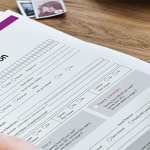What is Study Gap?
Study gaps are breaks in education that students take while enrolled in higher education to engage in other activities or for other reasons.
For Indian youngsters, studying abroad is a path to financial success and a bright future. Students often choose Canada as their top destination when considering study abroad options. When this happens, students with study gaps frequently wonder if they can still succeed.
Is it possible to study in Canada if you have a gap in your studies?
Yes, the answer is yes. The Canadian education system allows international students with a study gap to study in Canada.
However, such students must work harder to gain admission to a Canadian university. These include submitting additional documents as well as demonstrating a justifiable reason for the study gap.
In Canada, how much of a study gap is acceptable?
Students with up to a five-year study break are permitted to enroll in courses in Canada. Additionally, students who have had a study break of more than five years may still be eligible for a student visa in Canada if they can justify an honest and sincere cause for the break.
The length of the permitted break is mostly determined by the level of your degree or study course. For instance, Canada permits applicants to undergraduate and diploma programs a study break of up to two years, and it allows postgraduate school applicants a study break of up to five years.
|
Type of program Gap years allowed |
|
Postgraduate 5 years |
|
Undergraduate 2 years |
|
Diploma 2 years |
Several Explanations for the Study Gap Medical Issues:
Students may be forced to take a study break due to issues like serious illnesses or accidents. As long as the students can offer medical documentation to support their condition, Canadian colleges will take these types of study gaps into consideration.
Skill Development:
Instead of pursuing a degree, some students choose to take short-term courses and get certifications to gain additional information. Such circumstances caused them to take a study break, but this would not prevent them from studying in Canada.
Competitive and Other Exam Preparation:
In today’s competitive environment, entrance exams have become the norm. Students who want to achieve a high score choose to take a study break because studying for these exams takes time. These disparities are understandable and acceptable to Canadian universities.
Family Issues:
Family problems are one of life’s most difficult aspects, and they are unavoidable. Students may become disturbed with major family issues, such as the death of a family member, which prevents them from focusing on their studies. These study gaps can also be clearly explained to Canadian universities to clear your path to study in Canada.
Budgetary Issues:
The cost of studying abroad is high. Students with insufficient funds may require additional time to gather the necessary funds and organize the necessary proof (proof of financial stability is a mandatory document to get a Canada student visa and study in Canada). Because the process can be lengthy, students may wish to take a break before beginning the application process.
Offer of Employment:
After graduation, some students choose to work for a while before attending college. Students are still able to apply for a student visa in Canada despite these kinds of gaps. Students can provide pay slips and letters of experience to support such gaps.
Justification for Study Gap – Helpful Documentation Paystubs:
If you had a job during your gap years, your paystubs might be used as proof of employment.
Scorecard:
If you were studying for the necessary exams (such as IELTS) during the gap period, the scorecard can serve as good filler.
Certificates from Health:
If serious health issues were the cause of your study gap, you can present the relevant health certificates and medical reports to support your claim.
Certificates:
If you were learning new skills during your gap year, you can show the certificates you received at the end of the course.
Possible Advantages of Study Gap
- It allows you to devote time to learning a new skill, which will help you improve your CV when you enter the job market.
- You can start working and gain valuable work experience. If the gap is due to family issues, you can resolve them without worrying about your academic performance.
- If you want to take a competitive exam/exam, you can focus more on your preparation, which will result in a higher score.
Possible Disadvantages of Study Gap
- If the gap is unjustifiable, it may make a negative impression on the authorities and reduce your chances of studying in top-rated study abroad destinations such as Canada.
- Educational inconsistency caused by a study gap may make it difficult to resume your studies.
- You have a late start in your career.
Some Canadian Universities Accept Study Gap Students
Humber College, Toronto Seneca College, Toronto
Royal Roads University, British Columbia New York Institute of Tech, Vancouver (NYIT) Centennial College, Toronto
How Can Consultants for Study Abroad Help?
You might be unsure of your ability to study in Canada. The best option is to get in touch with a knowledgeable group of study abroad experts. In order to help you in understanding your chances of studying in Canada, knowledgeable and experienced study abroad advisers (even us) also work to improve your chances of studying abroad in any way they can. We give top-notch IELTS, PTE, and TOEFL coaching, will help you understand the Canada student visa application procedure and successfully obtain your Canada student visa, as well as any other adequate assistance.
To learn more about our services in depth, contact us.




